Premium Only Content
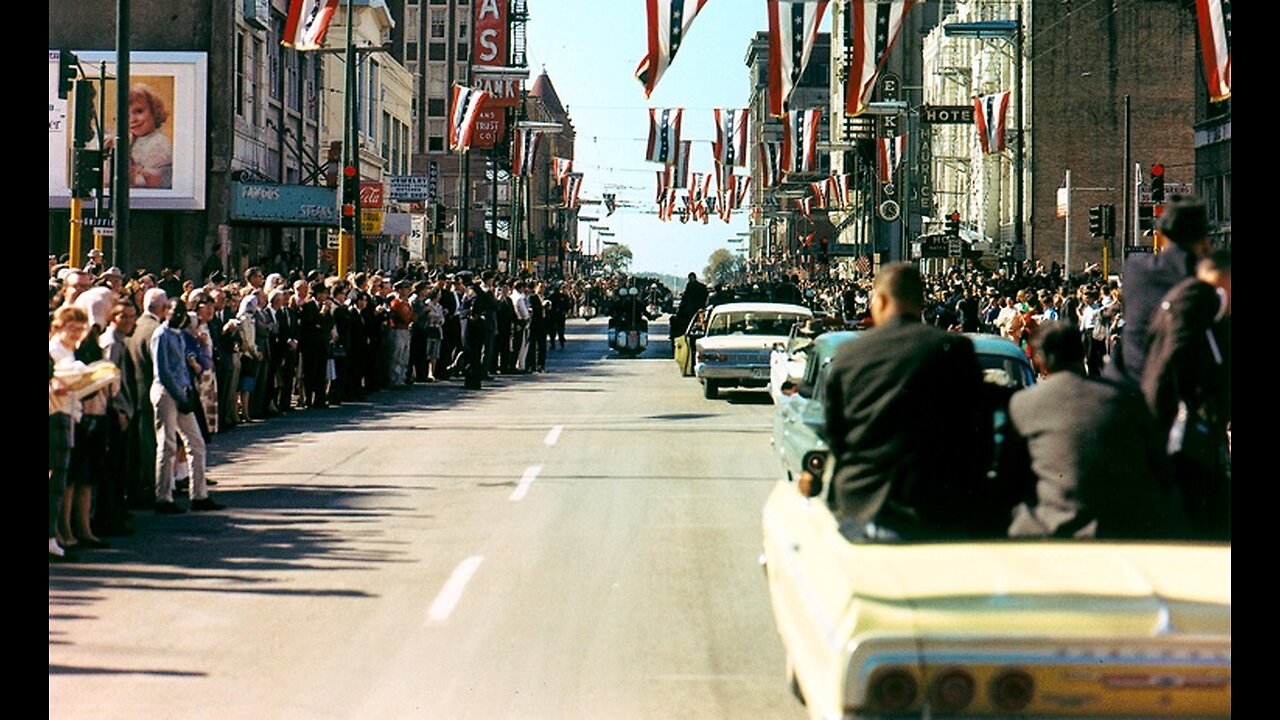
L. Fletcher Prouty Interview on CIA Involvement in Assassinations (1992)
L. Fletcher Prouty (1917-2001) was a former United States Air Force officer and intelligence officer, and a prominent conspiracy theorist. He served as the Chief of Special Operations for the Joint Chiefs of Staff during the Kennedy administration, and was later involved in the covert operations of the CIA in Southeast Asia. After leaving government service, Prouty became known for his writings and speeches on alleged conspiracies related to the assassination of President John F. Kennedy, the Vietnam War, and other covert operations of the US government. He claimed to have insider knowledge of the workings of the military-industrial complex, and believed that a shadowy group of elites controlled the government and manipulated global events for their own benefit. While his views were often dismissed by mainstream historians and officials, he gained a dedicated following among some segments of the public who were skeptical of government actions and narratives.
L. Fletcher Prouty was one of the earliest and most vocal proponents of the theory that the assassination of President John F. Kennedy was the result of a conspiracy involving multiple actors within the US government and intelligence agencies. He argued that the official version of events, which attributed the assassination to a lone gunman, Lee Harvey Oswald, was incomplete and misleading. Prouty claimed that there was evidence of a larger plot to kill Kennedy, possibly involving the CIA, organized crime, and other shadowy groups. He pointed to the presence of CIA operatives and military personnel in Dallas on the day of the assassination, and suggested that there was a cover-up of the true motives and actors behind the event. While his theories have been widely debated and criticized by mainstream historians and experts, they continue to be influential in some circles of conspiracy theorists and researchers.
L. Fletcher Prouty also expressed skepticism about the official version of events surrounding the assassination of Robert F. Kennedy, the younger brother of President John F. Kennedy. He believed that there was evidence of a larger conspiracy at work, possibly involving elements of the US government and intelligence agencies. Prouty argued that the assassination was not the work of a lone gunman, Sirhan Sirhan, but rather the result of a carefully planned operation involving multiple actors. He pointed to inconsistencies in the official narrative, such as the presence of additional bullet holes in the walls of the hotel pantry where the shooting occurred, as evidence of a larger conspiracy. Prouty's views on the RFK assassination, like his views on the JFK assassination, have been debated and challenged by mainstream historians and experts.
L. Fletcher Prouty was highly critical of the Central Intelligence Agency (CIA) and its role in various covert operations and intelligence-gathering activities. He believed that the CIA had become too powerful and was involved in numerous conspiracies and covert actions around the world, often without the knowledge or approval of elected officials or the public. Prouty argued that the CIA had a "secret team" of operatives who conducted assassinations, sabotage, and other covert actions in the name of US national security, often with little or no oversight or accountability. He also criticized the CIA's role in promoting and supporting military conflicts and coups in countries such as Vietnam, Iran, and Guatemala. Prouty's views on the CIA were controversial and challenged by many mainstream officials and experts, but they were influential in shaping popular perceptions of the agency and its actions during the Cold War era.
Leroy Fletcher Prouty (January 24, 1917 – June 5, 2001)[1] served as Chief of Special Operations for the Joint Chiefs of Staff under President John F. Kennedy. A colonel in the United States Air Force, he retired from military service to become a bank executive. He subsequently became a critic of U.S. foreign policy, particularly the covert activities of the Central Intelligence Agency (CIA), which he believed was working on behalf of a secret world elite.
Prouty's commentary on the Kennedy assassination circulated widely from the 1970s-90s, as a key source for conspiracy theories about it. He was the inspiration for the character "Mr. X" in Oliver Stone's film JFK.[2]
Early life
Family
Prouty was born in Springfield, Massachusetts on January 24, 1917, to Marie Ozias Desautels, age 32, and Leroy Flecther Prouty, a municipal government employee, age 28.[3][4] He was the first child in a growing family and would eventually become one of five, with two brothers and two sisters.[4]
His first brother Robert Vincent was born one year later on May 9, 1918, and they were joined by a sister Muriel two years after that on September 28, 1920.[4] Another baby girl joined the family on March 24, 1921, and was named Corinne Marie;[4] she later went by Corinne Toole.[5] The youngest of the Prouty children, a boy named Norman Peter, was born 1926.[4] Corinne was his only sibling to survive him.[5]
Prouty married Elizabeth Ballinger on October 5, 1942, and with her he fathered three children: David Fletcher, Jane Elizabeth, Lauren Michele.[3]
Education
Prouty attended the University of Massachusetts Amherst (then known as Massachusetts State College), and on September 20, 1936, he was elected President of his freshman class, "the Class of 1940," succeeding Daniel G. Lacey.[6][7][3] He later pursued his graduate studies in banking at the University of Wisconsin–Madison Graduate School of Banking.[8]
Prouty belonged to a handful of membership organizations: the National Defense Transportation Association, the American Bankers Association, the Tokyo Toastmasters Club, and the Army Navy Club.[3]
Government service
World War II
Prouty was commissioned as a reserve 2nd lieutenant in the cavalry on June 9, 1941, and began his military career with the 4th Armored Division in Pine Camp, New York. He was promoted to 1st lieutenant on February 1, 1942. He transferred to the United States Army Air Forces on November 10, 1942, and earned his pilot wings that same month. He arrived in British West Africa (specifically the British Gold Coast colony) in February 1943 as a pilot with Air Transport Command.[9]
In the summer of 1943 he was the personal pilot of General Omar Bradley, General John C. H. Lee and General C. R. Smith (founder and president of American Airlines), among others. He flew the U.S. Geological Survey Team in Saudi Arabia, October 1943, to confirm oil discoveries in preparation for the Cairo Conference. He was assigned to special duties at the Cairo Conference and the Tehran Conference November–December 1943. He flew Chiang Kai-shek's Chinese delegation (T. V. Soong's delegates) to Tehran.[citation needed]
An important mission he was involved in was the evacuation of the British commandos made famous by the novel Guns of Navarone involved in the Battle of Leros from Leros to Palestine. He was promoted to captain on February 1, 1944. In 1945 he was transferred to the Southwest Pacific and flew in New Guinea, Leyte and was on Okinawa at the end of war. He landed near Tokyo at the time of the surrender with the first three planes carrying General Douglas MacArthur's bodyguard troops. He flew out with American POWs.[citation needed]
Post-war service
After the war, Prouty accepted an assignment from the U.S. Army in September 1945 to inaugurate the ROTC program at Yale University, where he also taught during each scholastic year from 1946 to 1948. This timeline intersects with the years that George Bush and William F. Buckley, Jr. also spent at Yale. Prouty fondly recalled Buckley at that time in his role as editor of the Yale Daily News, and Prouty later told an interviewer in 1989 that he had written for Buckley on several occasions.
In 1950 he transferred to Colorado Springs to build Air Defense Command. From 1952 to 1954 he was assigned to Korean War duties in Japan, where he served as Military Manager for Tokyo International Airport (Haneda) during the post-war U.S. occupation.
In 1955 he was assigned to the coordination of operations between the fledgling U.S. Air Force and the CIA.[1] As a result of a CIA commendation for this work he was awarded the Legion of Merit by the U.S. Air Force, promoted to colonel, and assigned to the Office of the Secretary of Defense.[citation needed]
Following the creation of the Defense Intelligence Agency and termination of the OSO by Secretary Robert McNamara, Prouty was transferred to the Office of the Joint Chiefs of Staff and charged with the creation a similar organization on a global scale.
From 1962 to 1963 he served as Chief of Special Operations with the Joint Staff. In an chance encounter with Edward Lansdale in the hallways of the Pentagon, a "month or two before" the assassination (as Prouty tells it), Lansdale informed Prouty he had arranged for him [Prouty] to accompany a group of VIPs to the South Pole from November 10 to 23, in the capacity of Military Escort officer.[10]
The ostensible purpose of the trip was the activation of a nuclear power plant at the United States Navy Base at McMurdo Sound, Antarctica, to provide heat, light, and sea water desalination.[citation needed] Prouty later described his confusion at the unusual assignment, but he expected the job to be a "paid vacation" and accepted the task.
Prouty retired in 1964 as a colonel in the U.S. Air Force. As recognition of his long and distinguished career in the service of his country, he was awarded one of the first three Joint Service Commendation Medals by General Maxwell D. Taylor, Chairman of the Joint Chiefs of Staff.[citation needed]
Post-military
Railroads
He was a senior director of public affairs for Amtrak during the 1970s, and a director of the National Railroad Foundation and Museum. During this period he worked out of the Amtrak Corp. office in Washington, D.C.[citation needed]
Writing
Prouty authored two major books during his life, The Secret Team: The CIA and Its Allies in Control of the United States and the World in 1973 and JFK: The CIA, Vietnam, and the Plot to Assassinate John F. Kennedy in 1992.
He served alongside friend and fellow researcher Eustace Mullins as contributing editor for a conspiracy magazine titled Criminal Politics.[11]
Prouty also published articles in a wide variety of publications, from pornographic magazines to peer-reviewed journals to academic textbooks, illustrating the wide diversity in his intended audiences for different writings. His areas of expertise were cultivated by direct experience as well as research, and they range from railroads to assassinations to transportation to military strategy and logistics.[citation needed]
His writings even include entries on Railroad Engineering and Foreign Railroad Technology for McGraw-Hill's Scientific Encyclopedias and Scientific Yearbooks, as well as contributions to ROTC textbooks.[citation needed]
Church of Scientology
In the early 1980s, Prouty's services as an expert witness were retained by the legal team of the Church of Scientology to act as consultant in the investigation of L. Ron Hubbard's military record.
By early 1985, Hubbard's naval record was again the subject of increasing scrutiny. Julie Christofferson Titchbourne of Portland, Oregon brought her case against the Church at that time, and Scientology's lawyers again turned to Prouty to help them manage the public relations fallout.[12] Prouty was forthcoming with an affidavit on their behalf by February. In it, he stated his belief that the records released by the U.S. Navy documenting Hubbard's service in the armed forces "are incomplete ... those materials and records provided give ample evidence that proves the existence of other records that have been concealed, withheld and overlooked."[13]
"...to provide proof of the fact that the records, data and related materials provided by the U.S. Navy (USN) and other government sources, all said to be the complete record and file on the military service, active and inactive, of Mr. L. Ronald Hubbard, formerly Lt. Commander, U.S. Navy Reserve, are incomplete ... [and] to attest to the fact that those materials and records provided give ample evidence that proves the existence of other records that have been concealed, withheld and overlooked."[13]
Hubbard, the founder of Scientology, had said that he sustained combat injuries during his military service in World War II and that he healed himself through measures that would become Dianetics.[14] However, Hubbard's military record does not show that he was wounded in combat. Church officials have stated that those records were incomplete and may have been falsified.[14] Prouty, according to Church of Scientology spokesman Tommy Davis, reported that Hubbard was an intelligence agent, and because of this his military discharge papers were "sheep dipped," meaning two sets of government records were created documenting Hubbard's service.[12][15]
Prouty's association with Scientology also provided him with a platform for his writing over the following decades, serving as senior editor of Freedom magazine, an official publication of the Church.[16] Between 1985 and 1987, Freedom published a 19-part series by Prouty which it described as having "provided a unique and highly informative view of the events which led up to the Vietnam War." The magazine later covered his perspective on the Jonestown affair. At times, he has described himself as "an editorial adviser to publications of the Church of Scientology."
Oliver Stone's JFK film
Prouty served as a technical adviser to Oliver Stone's 1991 film JFK. He was the inspiration for the mysterious "X" (played by Donald Sutherland), who assists Jim Garrison in the movie.[17]
Later life
Colonel Prouty died on June 5, 2001, at the Inova Alexandria Hospital in Alexandria, Virginia. His funeral service was held the next day at the Fort Myer Chapel, and he was subsequently buried at Arlington National Cemetery in Arlington, Virginia.[18]
Controversy
As a critic of the CIA, Prouty pointed out its influence in global matters, outside the realm of U.S. congressional and government oversight. His works detailed the formation and development of the CIA, the origins of the Cold War, the U-2 incident, the Vietnam War, and the John F. Kennedy assassination. Prouty wrote that he believed Kennedy's assassination was a coup d'état, and that there is a secret, global "power elite," which operates covertly to protect its interests—and in doing so has frequently subverted democracy around the world.[2]
Alexander Butterfield
On July 12, 1975, prior to closed-door questioning by the staff of the House Select Intelligence Committee, Prouty told reporters that Alexander Butterfield was a contact for the CIA at the White House.[19] He said he had learned the information over four years earlier from E. Howard Hunt while doing work for the National League of Families.[19][20] Prouty said that most federal government departments, including the Internal Revenue Service and the Treasury Department, had similar CIA contacts and that he assumed that former president Richard Nixon was aware of Butterfield's role.[19][20] Senator Frank Church said the Senate Select Committee to Study Governmental Operations with Respect to Intelligence Activities had found no evidence that the CIA planted an undercover agent within the White House or other government agencies.[19]
A few days later, Prouty partially walked back his comments in a telephone interview: "They may have told me the wrong name in order to cover up the real informer."[20] In a telephone statement to UPI that same day, Butterfield called the allegations "wholly false and defamatory" and stated that he had never met nor seen Hunt and had just recently heard of Prouty.[20] In an interview with CBS News from Eglin Air Force Base where he was serving his prison term for his involvement in the Watergate scandal, Hunt denied the allegation calling it an "unfortunate invention on Mr. Prouty's part."[21] Also interviewed by CBS, Prouty again stated it was Hunt who told him about Butterfield.[21]
In a personal letter sent to Roger Feinman at CBS News Radio on July 14, 1975, Harold Weisberg expressed his belief that "the clear inference of the Prouty connection is that as a CIA man Butterfield pulled the plug on Nixon."[22]
On July 19, Church said that his committee found that there was "no scintilla of evidence" to support Prouty's allegations, and that his committee had ruled out the possibility that Butterfield served as a liaison officer for the CIA.[23] Church also stated, "on close interrogation, Mr. Prouty is unable to substantiate his earlier statement and acknowledges this to be the case."[23]
Kennedy assassination
According to Prouty, people within the intelligence and military communities of the United States government conspired to assassinate Kennedy.[1] He maintained that their actions were a coup d'état to stop the President from taking control of the CIA after the Bay of Pigs Invasion.[1] Prouty stated that the assassination was orchestrated by Edward Lansdale ("General Y" in Oliver Stone's film JFK) and that Lansdale appeared in photographs of the "three tramps."[1]
In 1975, Prouty appeared with Richard Sprague at a news conference in New York to present what they believed was photographic evidence of a conspiracy.[24] According to Prouty, the movement of Kennedy after a bullet struck his head was consistent with a shot from the grassy knoll.[24] He also suggested that the actions of a man with an umbrella, the "Umbrella Man", were suspicious.[24]
1960 U-2 incident
In his 1973 book The Secret Team, Prouty provided an alternative view of the 1960 U-2 incident. He charged that the flight was sabotaged in such a way by anticommunist elements in our government as to cause the U-2 to lose altitude mid-flight, allowing the Soviets to shoot it down. Prouty believed the ultimate purpose of the operation was the engineering of the subsequent international incident that put an end to the increasingly amicable U.S.–Soviet relations and doomed any hope for a positive outcome between Khrushchev and Eisenhower at the Four Power Paris Summit set to begin May 16. The summit began as scheduled but quickly collapsed as a result of fallout from the incident.[25]
William Blum made his own case for Prouty's version of events in his own book, Killing Hope, published in 2008.[25]
Prouty's version of events was rejected by former CIA director Richard Helms, Bissell, Walter Pfoigheimer and other career officers of the Central Intelligence Agency. Helms commented on Prouty's reframing of the interests and outcomes of the incident, offering the following: "I simply don't believe that Prouty is accurate. There is no substance to the charge."[26]
Bissell later claimed that Prouty was not authorized for access to U-2 information and said, "I don't see what information there could have been aboard that aircraft that could have helped the Russians" to bring down Powers' U2.[26]
Antisemitic association
Prouty was a featured speaker at the 1990 convention of the Liberty Lobby.[27] Prouty was also named to the advisory board for the Lobby's Populist Action Committee. Prouty also sold the reprint rights for The Secret Team of the Noontide Press, the publishing arm for the Institute for Historical Review, a holocaust denial organization.[28][27]
Prouty denied having known of the racist and antisemitic associations of the Lobby, noted that he also spoke at a ceremony at the United States Holocaust Memorial Museum, and assured Oliver Stone "... that he was neither a racist nor an anti-Semite... but merely a writer in need of a platform."[citation needed] In a response to an article about Prouty in Esquire, which he labeled a "character assassination," Stone lamented Prouty's association with the Liberty Lobby but questioned its relevance to Prouty's reliability as a source.[29] In an obituary in The Guardian, Michael Carlson wrote that "[a]lthough Prouty himself never espoused such [anti-semitic] beliefs, the connection enabled critics to dismiss his later writings."[1]
Awards
This section of a biography of a living person does not include any references or sources. Please help by adding reliable sources. Contentious material about living people that is unsourced or poorly sourced must be removed immediately.
Find sources: "L. Fletcher Prouty" – news · newspapers · books · scholar · JSTOR (September 2021) (Learn how and when to remove this template message)
Prouty was awarded many decorations during his distinguished career in national and public service:
Command Pilot Wings
Office of the Secretary of Defense Identification Badge
Office of the Joint Chiefs of Staff Identification Badge
Legion of Merit
Joint Service Commendation Medal
American Defense Service Medal
American Campaign Medal
European-African-Middle Eastern Campaign Medal
Asiatic-Pacific Campaign Medal
World War II Victory Medal
Army of Occupation Medal with "Japan" clasp
Korean Service Medal
National Defense Service Medal with star
Air Force Longevity Service Ribbon with four oak leaf clusters
Philippine Liberation Medal
United Nations Korea Medal
Bibliography
External video
video icon Col. Prouty delivers a lecture in Portland following the release of the JFK film by Oliver Stone and his own book by the same title (1993), via YouTube. 116 mins.
Books
The Secret Team: The CIA and Its Allies in Control of the United States and the World. Englewood Cliffs, NJ: Prentice-Hall (1973). ISBN 0137981732. Full text.
JFK: The CIA, Vietnam, and the Plot to Assassinate John F. Kennedy. Introduction by Oliver Stone. New York: Birch Lane Press (1992). ISBN 1559721308. Full text.[30]
Book contributions
"Anatomy of Assassination." In: Uncloaking the CIA. Conference on the CIA and World Peace at Yale University (1975).
"Kennedy's Policy on Vietnam Led to His Murder." In: Assassination of John F. Kennedy. San Diego, CA: Greenhaven Press (2003). ISBN 978-0737713558, 978-0737713541.
Encyclopedic
"Railroad Engineering." McGraw-Hill Scientific Encyclopedia.
"Foreign Railroad Technology." In: McGraw-Hill Scientific Yearbook-1982.
Letters to the editor
Letters
"U-2 Shootdowns." Air Force Magazine, vol. 79, no. 4 (Apr. 1996). Full issue.
Remarks on the 1960 U-2 incident involving Francis Gary Powers.
Replies
Prouty's reply to "The Umbrella Man" (letter), by David R. Gallery (May 1976)
Filmography
Documentaries
World in Action [series] (Jun. 16–30, 1975).
"The Rise and Fall of the CIA (Part 1)." Season 11, Episode 38. (Jun. 16, 1975).
"The Rise and Fall of the CIA (Part 3)." Season 11, Episode 40. (Jun. 30, 1975).
The Secret Government: The Constitution in Crisis (1987). Special Report by Bill Moyers.
Who Killed Martin Luther King? (1989). Written and directed by John Edginton for BBC. Emmy-nominated.
The Men Who Killed Kennedy (1991). Directed by Nigel Turner.
The JFK Assassination: The Jim Garrison Tapes (1992). Written and directed by John Barbour.
The JFK Conspiracy (Apr. 15, 1992). Hosted by James Earl Jones. Written and directed by Daniel Helfgott.
Beyond 'JFK': The Question of Conspiracy (1992). Directed by Barbara Kopple and Danny Schechter. Features Carl Oglesby.
Media appearances
Tomorrow with Tom Snyder: JFK Assassination. NBC (April 15, 1975) [56 min.]
One in this series of late-night topical interview programs hosted by Tom Snyder. This installment, occurring on the 110th anniversary of Abraham Lincoln's death, focuses on the assassination of President John F. Kennedy and the many ongoing questions surrounding his death. Panelists include: forensic pathologist Cyril Wecht, attorney Bernard Fensterwald, and retired Air Force Colonel L. Fletcher Prouty, who served as Chief of Special Operations for the Joint Chiefs of Staff under Kennedy.[31]
Interviews
"An Interview with Colonel Fletcher Prouty" [audio]. All Things Considered... NPR (March 22, 1973)
Alan Douglas Show [video]. (April 12, 1973)
Who's On the Secret Team? [audio]. Interviewed by Paul McIsaac, Nanette Rainone and Carl Oglesby. Pacifica Radio Archives (December 11, 1973). 110 min. catalog.
Gray, Marvin L. (Jr). "Staff Interview." Counsel for the Presidents Commission on CIA Activities. [print]. Washington, D.C. (May 15, 1975)
Schorr, Dan. Interview [video]. CBS (July 11, 1975)
Ratcliffe, David T. "Understanding Special Operations and Their Impact on the Vietnam War Era: 1989 Interview with L. Fletcher Prouty" [audio]. Rat Haus Reality Press (1989)
The Mind of L. Fletcher Prouty [video] (1992).
Produced by Jim Grapek for Prevailing Winds Research, this interview was conducted by John Judge and took place in Colonel Prouty's home in Alexandria, Virginia.
Steinberg, Jeffrey. "'President Kennedy Was Killed by a Murder, Inc.'" [video]. Executive Intelligence Review, vol. 19, no. 6 (February 7, 1992), pp. 34–38. Full issue.
Valentine, Tom. Interview with L. Fletcher Prouty and Trenton N. Parker. Radio Free America [audio]. (July 29, 1993)[32]
James, Gary. "An Interview with 'Mr. X.'" [print]. Table Hoppers, vol. 1, no. 1 (March 30, 1995)
Wray, Tim, and Jeremy Gunn, Christopher Barger, Joan Zimmerman. Interview with L. Fletcher Prouty. Summary prepared by Christopher Barger on October 23, 1996 [print]. Assassination Records Review Board (September 24, 1996)
Meet Mr. X: The Personality & Thoughts of Fletcher Prouty [video]. (2001) 11 min.
This interview session is featured on the 2-disc JFK: Special Edition, released on DVD in 2001.
References
Carlson, Michael. "L Fletcher Prouty: US officer obsessed by the conspiracy theory of President Kennedy's assassination" (obituary). The Guardian (June 21, 2001). Archived from the original.
"JFK: The CIA, Vietnam, and the Plot to Assassinate John F. Kennedy". Publishers Weekly. August 31, 1992.
"L. Fletcher Prouty." In: Gale Literature: Contemporary Authors. Farmington Hills, MI: Gale (February 19, 2003). Gale In Context: Biography. Gale H1000080064.
"Leroy Fletcher Prouty Jr, 1917–2001." Ancestry.com. (subscription required). Accessed July 28, 2021.
Staff writer. "Leroy Letcher Prouty, Jr." (obituary). Washington Post (January 9, 2001). Archived from the original.
Staff writer. "Forester's Group Votes Faith in Commissioner." Boston Globe (January 29, 1937), p. 12.
The Index (1937). University of Massachusetts Amherst Yearbook, p. 158.
"...we decided to elect temporary class officers. Several glorified neophytes were nominated and after the ballots were counted we found that a toil youth from Springfield, Fletcher Prouty, had been elected President; and a pretty brunette from Pittsfield, Betty Bates had been elected Vice President." (p. 158)
Prouty, L. Fletcher. "Transportation at the Crossroads." Traffic Quarterly, vol. 35, no. 3 (July 1981), pp. 385–399. ISSN 0041-0713. OCLC 33850586.
"Leroy Fletcher Prouty, Jr. - Colonel, United States Air Force". 18 February 2023.
Ratcliffe, David. Interview with L. Fletcher Prouty, at his home (audio). (1989).
"A good example of these other paths is Criminal Politics, where Lawrence Patterson and his cohorts, including Eustace Mullins and Fletcher Prouty, scour the world for evidence of conspiracies within the world's power structure." Danky, Jim, and John Cherney, "An outpouring of right-wing publications cover all social issues", St. Louis Journalism Review, 25.n179 (Sept 1995): 27(1). InfoTrac OneFile. Thomson Gale.
Wright, Lawrence (February 14, 2011). "The Apostate; Paul Haggis vs. the Church of Scientology". The New Yorker. Retrieved July 18, 2014.
Prouty, L. Fletcher. Scientology affidavit(February 1, 1985). Archived from the original.
Sappell, Joel; Welkos, Robert (June 24, 1990). "The Making of L. Ron Hubbard: Creating the Mystique." Los Angeles Times, p. A38:1
"The Church Of Scientology, Fact-Checked". NPR. February 8, 2011. Retrieved July 18, 2014.
Masthead. Freedom, vol. 18, no. 4 (Dec. 1985), p. 1.
Toplin, Robert Brent (1 January 1996). "JFK". History by Hollywood: The Use and Abuse of the American Past. Urbana, Illinois: University of Illinois Press. pp. 50–51. ISBN 978-0-252-06536-1.
"Burial Detail: Prouty, Leroy Fletcher (Section 66, 6580)". ANC Explorer. Arlington National Cemetery.
"Butterfield called CIA contact in White House". Chicago Tribune. Vol. 129, no. 193 (Final ed.). July 12, 1975. Section 1, page 2. Retrieved June 19, 2017.
"Ex-CIA contact alters story on Butterfield". Chicago Tribune. Vol. 129, no. 196 (Final ed.). UPI. July 15, 1975. Section 1, page 2. Retrieved June 19, 2017.
"Hunt Denies Linking Butterfield, C.I.A." The New York Times. July 17, 1975. p. 14. Retrieved June 20, 2017.
Weisberg, Harold. Personal letter to Roger Feinman, CBS News Radio (July 14, 1975). Harold Weisberg Collection at Hood College.
"Find No CIA Tie to Butterfield; Senate Panel Clears Him". Chicago Tribune. Vol. 129, no. 200 (Final ed.). July 19, 1975. Section 1, page 3. Retrieved June 19, 2017.
"2 Claim Conspiracy Proof in JFK's Death". Milwaukee Sentinel. UPI. September 4, 1975. p. 3. Retrieved January 18, 2013.
Jacques, Geoffrey. "Bridge of Spies." Cinéaste, vol. 41, no. 2 (Spring 2016), p. 51. JSTOR 26356500.
Powell, Dave. "JFK's Murder, Ex-agent Claims." National Insider, vol. 24, no. 23 (June 8, 1974)
Berlet, Chip. Right Woos Left: Populist Party, LaRouchite, and Other Neo-fascist Overtures To Progressives, And Why They Must Be Rejected. Political Research Associates (February 27, 1999)
Anson, Robert Sam (November 1991). "The Shooting of JFK". Esquire.
Stone, Oliver (December 1991). "Esquire Letter: Stone Shoots Back". Esquire.
Steinberg, Jeffrey. "Unique View of JFK Assassination." Review of JFK: The CIA, Vietnam, and the Plot to Assassinate John F. Kennedy by L. Fletcher Prouty. Executive Intelligence Review, vol. 19, no. 45 (November 13, 1992). Full Issue.
Beyond JFK: The Question of Conspiracy (1992). Directed by Barbara Kopple & Danny Schechter. 90 min. Tomorrow with Tom Snyder: JFK Assassination (TV).”, The Paley Center for Media. Archived from the original.
Stich, Rodney. Drugging America: A Trojan Horse. (2nd Ed.) Silverpeak Enterprises (2005), p. 29. ISBN 0932438350 / ISBN 978-0932438355.
"[Trenton N. Parker] shared the two-hour program ... describing the mechanics of the CIA's Operation Interlink. Prouty stated during the show that Parker's revelations 'make this one of the most important shows on the CIA that has ever occurred'."
Further reading
McAdams, John. "L. Fletcher Prouty: Fearless Truth Teller, or Crackpot?" John McAdams' The Kennedy Assassination website.
Steinberg, Jeffrey. "Unique View of JFK Assassination." Executive Intelligence Review, vol. 19, no. 45 (Nov. 13, 1992). Full Issue.
"Coup d'Etat in America: Col. L. Fletcher Prouty" (eulogy). Criminal Politics (Jun. 30, 1991).
-
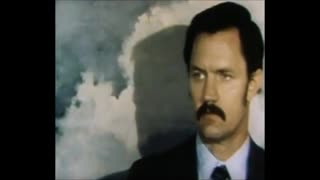 55:35
55:35
The Memory Hole
11 months agoJohn Stockwell Reveals Shocking CIA Secrets in 'In Search of Enemies' (1978)
1.49K3 -
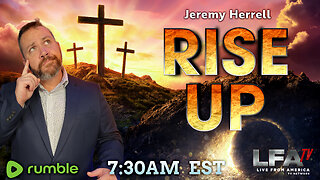 LIVE
LIVE
LFA TV
10 hours agoLIVE & BREAKING NEWS! | FRIDAY 11/21/25
7,497 watching -
 LIVE
LIVE
Chad Prather
17 hours agoWhen God Shakes the Room: Bold Faith in a Fearful World
4,006 watching -
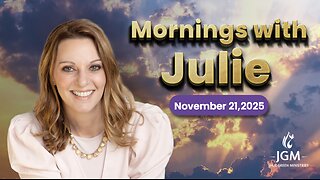 58:40
58:40
Julie Green Ministries
1 hour agoLIVE WITH JULIE
2.1K61 -
 1:01:10
1:01:10
Crypto Power Hour
10 hours agoAnimus Bitcoin Technology
968 -
 LIVE
LIVE
Game On!
16 hours agoAnother FOOTBALL FRIDAY! Weekend Preview And BEST BETS!
311 watching -
 31:55
31:55
ZeeeMedia
18 hours agoHow Gold & Silver Fight Against Digital ID ft. Bill Armour | Daily Pulse Ep 148
4.05K8 -
 13:29
13:29
Clintonjaws
14 hours ago $10.64 earnedCNN Host Stops Show & Plays Surprise Clip Forcing Democrat To Correct Lie
19K10 -
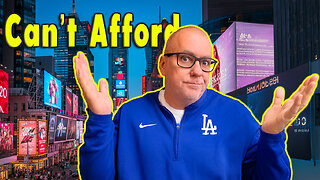 14:55
14:55
World2Briggs
18 hours ago $1.10 earnedThe 10 U.S. Cities Americans Can No Longer Afford — 2025 Edition
2.93K -
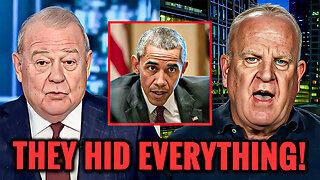 8:19
8:19
Millionaire Mentor
16 hours agoATC Whistleblower EXPOSES Obama’s Dirty FAA Secret
4.38K5